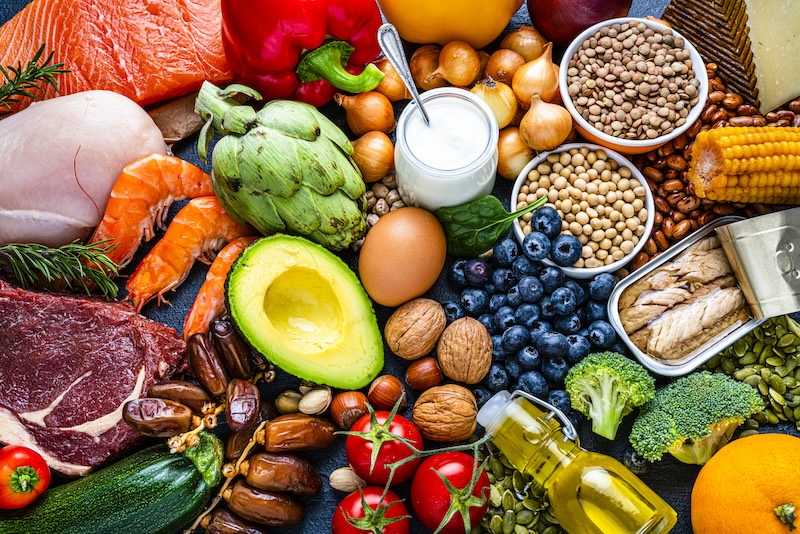The Importance of Gut Health
The complexity of gut health and how it affects your overall wellness is currently a topic that is garnering a lot of interest in the wellness industry.
Within your gut, trillions of tiny microbes digest food, fight harmful pathogens, make vitamin K, ensure medications are working correctly, and influence the proper functioning of your immune system, nervous system, heart, and brain.
The genes of all your gut microbes are collectively called the gut microbiome. A biome is a distinct ecosystem characterized by its environment and its inhabitants. Your gut is a miniature biome where the trillions of microbes do their work making sure your body is functioning correctly.
If you have poor gut health, chances are you’ll experience some very uncomfortable symptoms. Some signs of poor gut health include unintentional weight fluctuations, skin issues, moodiness, fatigue, and autoimmune conditions. These conditions influence your overall wellness, so without proper gut health, your overall well-being suffers.
Foods that Lead to a Healthy Gut
It’s never too late to change your diet to improve your gut health. There are some food categories that are proven to improve the microbes in your gut, and some that you should avoid in order to maintain that improvement. Probiotics, prebiotics, fiber, polyphenols, and fermented foods are those that will upgrade your gut health.
Probiotics
Probiotics are made up of the beneficial bacteria that live in your gut. They can be found in fermented foods. They not only help in balancing your gut bacteria, but they can also prevent chronic disease, boost your immunity, and have positive effects on heart and skin health.
- Sauerkraut: During the fermentation process, microorganisms eat the sugar present in cabbage and produce carbon dioxide and acids. The probiotics created during the fermentation process help with digestion and add good bacteria to your gut, and sauerkraut also includes fiber which is great for overall gut health.
- Yogurt: Yogurt is made by adding healthy bacteria to milk and allowing it to ferment. When choosing a yogurt, you want to look for one with “active cultures” (aka probiotics). You should also look at sugar and fat content when selecting a yogurt, a nonfat greek style yogurt is your best bet in this category.
Prebiotics
Prebiotics are the “food” your probiotics need to continue working in your gut. Prebiotics are a type of dietary fiber that bypasses the digestion process and makes it all the way to your colon, where microorganisms metabolize and ferment the prebiotics to survive. This is beneficial for gut health because the fermentation process produces a number of byproducts that help the body in many ways.
- Onions: Onions are full of inulin, fructans (prebiotic fiber), and fructooligosaccharides (FOS) that help build up gut bacteria or flora. According to a 2022 review of the literature published in the International Journal of Molecular Sciences, FOS can help improve conditions like diarrhea, osteoporosis, gastrointestinal issues, cardiovascular disease, and Type 2 diabetes.
- Raspberries: One cup of raspberries contains close to 8 grams of fiber, which is nearly one-third of your daily recommended intake. Raspberries are a rich source of polyphenols, potent antioxidants that your gut microbes love to indulge in.
Polyphenols
Polyphenols are a category of plant compounds that act as antioxidants by neutralizing free radicals that may otherwise damage your cells and increase the risk for chronic disease. Consuming polyphenols is thought to boost digestion and brain health and also protect against heart disease, Type 2 diabetes, and some cancers.
- Dark Chocolate: Dark chocolate is full of antioxidants that help fight free radicals in the body. Chocolate is also a fermented food where certain bacterias and yeasts are used to help achieve flavor from the raw ingredients. A recent study in the Journal of Nutritional Biochemistry revealed that healthy humans who consumed 85 percent dark chocolate showed a positive influence on gut microbiota and their ability to restructure the diversity and abundance of gut bacteria.
- Green Fruits and Vegetables: Spinach, green apples, green tea, celery, olives, and asparagus contain flavonoids, tannins, epigallocatechin gallate, vitexin, and isoflavones. These provide antioxidant and anti-inflammatory benefits, protecting the gut against chronic diseases. They also promote the growth of good gut bacteria like Bifidobacterium and Lactobacillus.
Where to Start
Knowing what’s happening in your body before you try to improve upon it is a great place to start. Your genes have a lot to do with reaching your optimal health, and 10X Health offers the Precision Genetic Test to understand what is functioning correctly in your body and what could be improved on.
The Precision Genetic Test is an easy, at-home genetic test that provides you with expert feedback and recommendations on what your nutrition should look like, what your fitness or exercise routine should look like, and uncover any nutritional deficiencies you may have. The best place to find out what’s happening in your gut is to look at your genes.
Get started on the journey to better gut health. Order your 10X Precision Genetic Test today.
